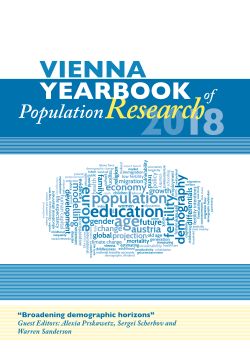
Vienna Yearbook of Population Research 2018, pp. 163-175, 2019/02/26
Broadening demographic horizons

Will the population of today’s high-income countries continue to age throughout the remainder of the century? We answer this question by combining two methodologies, Bayesian hierarchical probabilistic population forecasting and the use of prospective ages, which are chronological ages adjusted for changes in life expectancy. We distinguish two variants of measures of aging: those that depend on fixed chronological ages and those that use prospective ages. Conventional measures do not, for example, distinguish between 65-year-olds in 2000 and 65- year-olds in 2100. In making forecasts of population aging over long periods of time, ignoring changes in the characteristics of people can lead to misleading results. It is preferable to use measures based on prospective ages in which expected changes in life expectancy are taken into account. We present probabilistic forecasts of population aging that use conventional and prospective measures for high-income countries as a group. The probabilistic forecasts based on conventional measures of aging show that the probability that aging will continue throughout the century is essentially one. In contrast, the probabilistic forecasts based on prospective measures of population aging show that population aging will almost certainly come to end well before the end of the century. Using prospective measures of population aging, we show that aging in high-income countries is likely a transitory phenomenon.